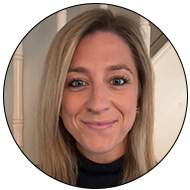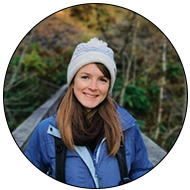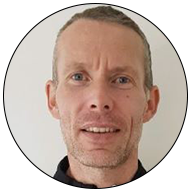This free webinar provided an insight into achieving Chartership as a Land Condition professional. It covered a range of the professional registrations on offer at the IES, with a particular focus on Chartered Environmentalist (CEnv) and Chartered Scientist (CSci).
Attendees heard from:
- Ethny Childs, Communities & Partnerships Lead at the IES, who talked through the routes to Chartership as an IES member, as well as other registrations relevant to Land Condition professionals such as Specialist in Land Condition (SiLC) and Suitably Qualified Person (SQP), and the benefits of working towards them.
- Sarah Harris and Leanne Carr, members of the Early Careers Network Steering Group who have achieved CEnv and CSci respectively. Sarah and Leanne reflected on the benefit becoming Chartered has had to their careers and their experiences going through the application process.
- Darren Makin, a member of the Land Condition Community who has achieved CSci and provides mentorship and CPD support to early career professionals in his role.
This webinar was hosted by our Land Condition Community Early Careers Network Steering Group. A written summary of the webinar is provided below. Please get in touch with the IES admin team on info@the-ies.org or +44 (0)20 3862 7484 if you have any further questions about Chartership or registrations.
This information has been prepared by the Land Condition Community Early Careers Network as a record of their March 2025 Chartership panel discussion. It provides an overview of the different registration options open to Land Condition professionals at the IES, with a focus on Chartership. The information is supplemented by the experiences and insights of two members of the Early Careers Network Steering Group, Sarah Harris and Leanne Carr, as well as Land Condition Community member Darren Makin.
Sarah's reflections on CEnv
 Sarah was a project manager and technical specialist when she began her CEnv journey, and had been responsible for designing remediation schemes and undertaking risk assessments. She felt that CEnv best demonstrated her commitment to embedding sustainability principles within her work and the brownfield regeneration sector. Though she has now moved into the regulation space, it has still proved a useful and relevant registration.
Sarah was a project manager and technical specialist when she began her CEnv journey, and had been responsible for designing remediation schemes and undertaking risk assessments. She felt that CEnv best demonstrated her commitment to embedding sustainability principles within her work and the brownfield regeneration sector. Though she has now moved into the regulation space, it has still proved a useful and relevant registration.
Sarah took part in a CEnv in a Day workshop as she felt the external deadline would motivate her through the process. Before the workshop, all attendees are sent an information pack to help them prepare for the day. Sarah advised making the most of this information and going into the workshop as prepared as possible – including putting together a draft report to build on during the time you can spend with the workshop facilitator. This means you are able to receive the most specific advice possible to improve what you have put together.
The competency report felt like a challenge when Sarah initially looked over its requirements but she felt supported throughout the process of compiling it, both before and during the CEnv in a Day workshop. She emphasised that, although the report may seem daunting, it is ultimately just a way to record and evidence what you do at work, aligning this experience with the CEnv competencies. Sarah’s biggest piece of advice for the report is keeping a ‘what, why, how, outcome’ structure in mind: What are you being asked to demonstrate? Why is that important to the registration you are looking to achieve? How have you demonstrated it? What was the outcome when you demonstrated it?
Sarah shared that the interview felt like the most intimidating part of the process but reflected that, in reality, it is more of a professional conversation about your capabilities and chance to talk through the information you have shared in your report.
Leanne's reflections on CSci
 Leanne chose to become a CSci as the competencies fit her experience and work style the best, and the registration also aligned with her career goals long-term.
Leanne chose to become a CSci as the competencies fit her experience and work style the best, and the registration also aligned with her career goals long-term.
Pursuing the self-guided route enabled Leanne to take the process at her own pace, and she was not required to attend an interview.
Her biggest piece of advice for this process was to take advantage of the IES Mentorship programme and find someone who can support you through the process. Together with her mentor, Leanne set a deadline to work towards. They scheduled fortnightly meetings throughout this period to iteratively review sections of Leanne’s report, keeping her on track and providing invaluable insight into approaching the task. Agreeing with Sarah’s advice about the ‘what, why, how, outcome’ structure needed for the report, Leanne suggested colour-coding each of these elements to ensure, at a glance, that your report is balanced and contains adequate detail about each throughout.
Leanne reflected on the range of CPD she has been able to incorporate into her CSci journey – from broadening her knowledge through more formal learning to supporting local nature conservation and restoration efforts as a volunteer. She emphasised the importance of variety in CPD to ensure you are expanding your understanding of the sector and developing new skills throughout your career.
Darren's advice on CPD and mentoring
 Darren suggested thinking about CPD in terms of the extra learning you can do to advanced you towards your goals. He noted that skills are just as important as knowledge – this might include things like leadership, facilitation or public speaking. It can be useful to cross-reference CPD with competencies that you’d like to work towards – perhaps those relevant to a registration you would like to achieve.
Darren suggested thinking about CPD in terms of the extra learning you can do to advanced you towards your goals. He noted that skills are just as important as knowledge – this might include things like leadership, facilitation or public speaking. It can be useful to cross-reference CPD with competencies that you’d like to work towards – perhaps those relevant to a registration you would like to achieve.
In terms of reflecting on learning, Darren pointed out that it can also be valuable to think about what could have been improved during projects and tasks you have been a part of, as this is an important learning experience. It is important to carry out CPD that is appropriate for your level of experience, with the goal of expanding your knowledge and challenging yourself rather than remaining in your comfort zone.
Darren advised keeping a record of all the learning you do, regardless of whether you are currently reporting on CPD for a specific reason. This will enable you to track how your knowledge has grown over time, and evidence this should you need to.
Defining mentoring as “the professional relationship in which an experienced person (the mentor) assists another (the mentee) in developing skills and knowledge that will enhance their professional growth and development”, Darren emphasised how useful it can be in progressing your career – especially during the early stages of your time in the land condition sector. At the IES, prospective mentees are matched with mentors through the Mentoring Scheme. Mentoring can be goal orientated (e.g. working towards registration) or more general (e.g. providing career support).
There are a range of ways in which a mentor can support a mentee, and Darren provided the ‘WAVE’ model as an example. In this process, a mentor will work with a mentee to identify a goal, then work through why it is important; the actions needed to achieve the goal; visualisation of what achieving the goal might look like; and engaging any support that may be needed.
Header image credit: © Jack Cousin - Adobe Stock